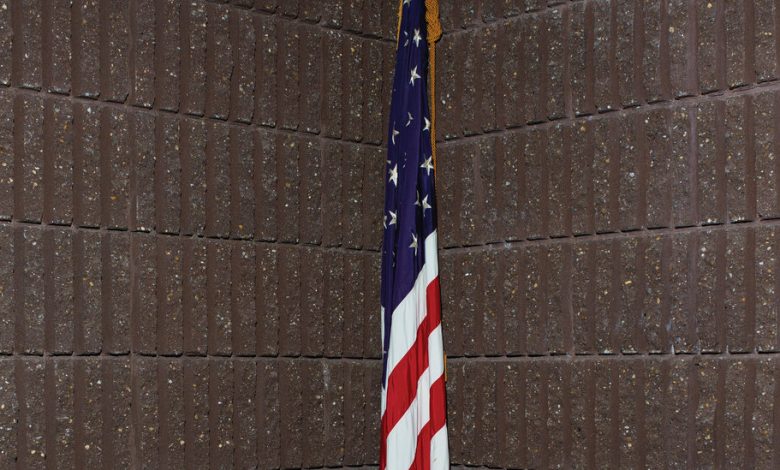Why Secrets Lost Their Sizzle

In April, secret documents allegedly photographed by a member of the Massachusetts Air National Guard began making their way into the mainstream media. Many were briefings prepared by military intelligence services, and much of it dealt with the Russia-Ukraine war. They offered Americans a rare window into the government’s most valuable intelligence on one of Europe’s deadliest conflicts since World War II.
We’ve been here before. In 2010, WikiLeaks began churning out hundreds of thousands of secret documents about the wars in Iraq and Afghanistan that had been leaked by an Army private, prompting Secretary of State Hillary Clinton to declare that such disclosures “tear at the fabric of the proper function of responsible government.” Three years later, Edward Snowden, a National Security Agency contractor, leaked another batch of highly classified documents. President Barack Obama warned then that if anybody who disagreed with the government could choose to reveal its secrets, “we will not be able to keep our people safe, or conduct foreign policy.”
This time the reaction has been quite different. The Pentagon did say that the latest disclosures — widely known as the “Discord Leaks” — present a “very serious risk to national security.” But there has been curiously little public interest in the spilled secrets. News coverage has focused mostly on the banality of the person charged in connection with the leak and his motives: Jack Teixeira, a low-ranking 21-year-old in the Massachusetts Air National Guard with a penchant for far-right racist gibberish and guns, who allegedly printed out secret documents from his work to impress his online chat group on the social platform Discord.
Reaction to the indictment of Donald Trump has followed a similar pattern, though the case revolves around a former president’s handling of classified files, not leaked secrets. So far, attention has mostly focused on the political repercussions of the indictment, even though the charges include alleged violations of the Espionage Act suggest the government regards the documents as secrets whose disclosure could harm the United States or aid a foreign adversary.
On the Discord front, investigations underway by the government and military will presumably address the obvious questions: How much damage did the leaks do? Why did a low-ranking tech once again have access to so much secret stuff, and how did he get the clearance for it? For that matter, why does the Massachusetts Air National Guard have that kind of access? How did Mr. Teixeira so easily print this stuff out, when there should be all sorts of safeguards against that?
There’s nothing especially surprising in the public fascination with Mr. Teixeira, nor with earlier lead actors in major security leaks such as Mr. Snowden, Chelsea Manning or Julian Assange. But why so little interest in the secrets themselves? Given the huge American investment in defending Ukraine against an equally huge Russian determination to crush it, the “Discord Leaks” seemed like they would be a natural sensation. A small sampling of the purported intelligence, as reported by various news organizations:
● U.S. intelligence assessments have expressed serious doubts that the Ukrainian spring counteroffensive would achieve more than “modest territorial gains,” especially given the problems with training and ammunition.
● Earlier in the war, the United States tried to dissuade Ukraine from defending Bakhmut, which Russia eventually seized.
● Russia’s special forces have been decimated by the conflict, according to American assessments, and could take years to rebuild.
● What appeared to be American electronic intercepts captured the Russian spy agency accusing the Russian defense ministry of concealing the true toll of the war, in part by excluding the dead and wounded in national guard and mercenary forces.
● An unnamed source said that President Vladimir Putin of Russia was scheduled to undergo chemotherapy, and that the Russian chief of general staff, Valery Gerasimov, and security council secretary, Nikolai Patrushev, were suspected to have “devised” a plan to “sabotage” the president while he was under treatment.
Some of the documents deal with other countries, too, including discussions within the South Korean leadership on whether or not the artillery shells the country agreed to sell to the United States would end up in Ukraine; efforts by Wagner, a Russian mercenary group, to buy arms from Turkey through Mali; purported plans by Egypt to supply rockets to Russia; and suggestions that Israel’s Mossad intelligence agency backed protests against Prime Minister Benjamin Netanyahu’s attempt to downgrade the powers of the country’s judiciary.
Why has this trove of information generated less excitement than previous leaks?
One reason cited by intelligence experts is that the Ukraine war is already being reported in minute detail, and the batch of raw intelligence does not substantially change the overall perception of the state of affairs. While the leaked documents testify to the extraordinary intelligence-gathering abilities of the United States and provide some granular details of the fight, this might no longer impress an American public that’s saturated with information and immured to the notion of ubiquitous data mining. It’s hard to get excited by information purportedly intercepted from Russian military leaders when selfies by their troops circulate openly.
The White House, moreover, has wisely shared considerable intelligence about the war. Its intelligence-gathering prowess was on early public display when it accurately predicted the Russian invasion at a time when many experts dismissed the possibility.
Another factor in the lackluster public reception may be that the leaks aren’t politically scandalous. Though their disclosure is worrisome to intelligence agencies, embarrassing to American diplomats and irritating to foreign leaders, there are no revelations of gross dereliction or covert iniquities, as have dropped in past leaks.
“So far there are no bombshells about bad government behavior,” said Tom Blanton, director of the National Security Archive at George Washington University. “Nothing akin to the revelation of massive spying on Americans in Mr. Snowden’s cache, or even the camera footage of the death of the Reuters cameraman revealed by Chelsea Manning.”
Nor do the documents reveal much, if any operational information that could compromise secret missions. Much of the material made public is raw reporting, neither confirmed nor yet analyzed. There is no indication, for example, that the information about Mr. Putin’s chemotherapy is anything but a long-circulating rumor, and no proof that top officials are scheming against him. It’s presented simply as something that’s out there.
And for all the dire warnings from Mrs. Clinton, Mr. Obama and others a decade ago, the far more voluminous and potentially harmful information leaked by Ms. Manning and Mr. Snowden did not wreck America’s ability to function in the world. Most foreign governments probably assume the United States and its major allies are keeping an electronic eye on them, and in any case America’s clout leaves them little choice but to carry on. The Discord files do not change that.
On balance, the public’s reaction may have it right. It’s worrisome that a low-level racist gun-lover can so easily copy information that needs to be secret. But it’s good to learn that American spy services are doing such a good job of having eyes and ears on a war that’s costing Americans a small fortune.
Serge Schmemann is a member of the editorial board.
The Times is committed to publishing a diversity of letters to the editor. We’d like to hear what you think about this or any of our articles. Here are some tips. And here’s our email: [email protected].
Follow The New York Times Opinion section on Facebook, Twitter (@NYTopinion) and Instagram.
Serge Schmemann joined The Times in 1980 and worked as the bureau chief in Moscow, Bonn and Jerusalem and at the United Nations. He was editorial page editor of The International Herald Tribune in Paris from 2003 to 2013.




